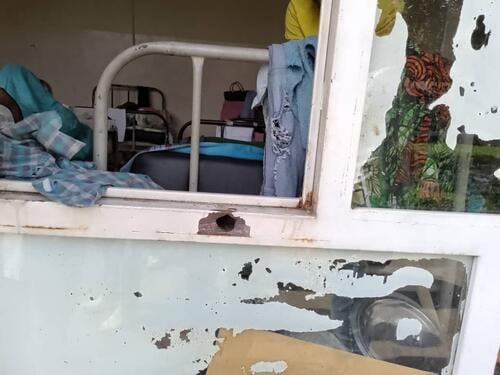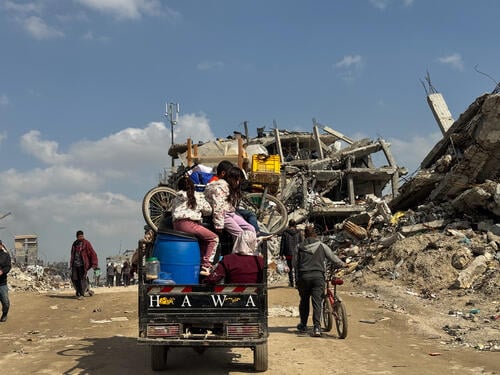After 13 years of collaboration with the Ministry of Health and Social Protection of Population, Médecins Sans Frontières (MSF) has concluded our tuberculosis (TB) project in Dushanbe, Tajikistan.
MSF’s work in Dushanbe focused on detecting TB cases through improved diagnostic techniques, tracing contacts, and treating children and incarcerated people with drug-resistant TB (DR-TB). Our teams aimed to improve TB care by empowering patients, promoting self-administered treatment, educating patients about health, and engaging the community. Generally, there was a lack of knowledge regarding effective diagnosis and treatment of DR-TB in children and adolescents. We wanted to demonstrate that provision of care for children is feasible, and that DR-TB can be successfully diagnosed and cured.
Key to the programme was the introduction of person-centred approach through:
- contact tracing, especially in children, to stop the spread of infection by identifying and testing people who have had recent contact with someone diagnosed with TB;
- support to survivors of domestic violence with a holistic patient-centred approach;
- compounding drugs to make formulations for children at a time when paediatric formulations were limited globally;
- providing mental health and psychosocial support, including counselling.
We reflect on the project’s successes with the below timeline.
2011: MSF and the Ministry of Health and Social Protection of Population (MoHSPP) team up for a groundbreaking TB programme offering lifesaving treatment to children with multidrug-resistant tuberculosis (MDR-TB) in the country for the first time.
2013: For the first time in Tajikistan, MSF, in collaboration with the MoHSPP, diagnoses TB in children using sputum induction, a highly effective diagnostic method. MSF even sets up a special room for this purpose and provides training for the staff working at the state health facilities.
“It is quite difficult to collect sputum from children, especially those under five years old, as they cannot spit out their sputum,” said Surayo Abdulkhamidova, MSFs’ infection, prevention and control manager. Sputum induction simplifies this procedure. “The child inhales a special vapour,” said Abdulkhamidova. “Within 10-15 minutes, sputum begins to produce. This sputum is easily and non-traumatically collected into a special sterile container and sent to the laboratory.”
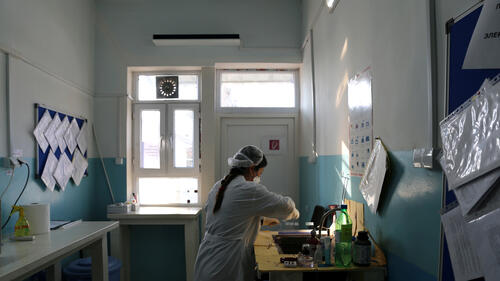
2013: MSF, in collaboration with the MoHSPP, hosts a regional Eastern Europe and Central Asia TB symposium in Dushanbe, bringing together over 100 experts from Tajikistan and beyond to exchange insights and strategies for improving TB care.
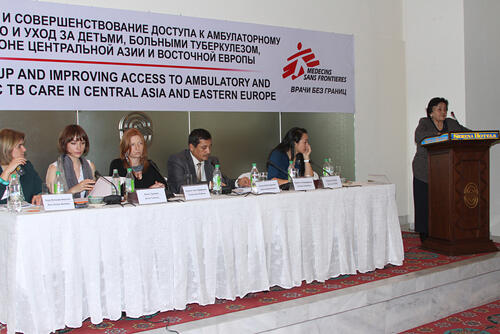
2015: The introduction of GeneXpert, a preferred diagnostic tool, improves testing by eliminating several steps and reducing diagnosis time to several hours, instead of weeks or even months.
“Thanks to GeneXpert, we can diagnose tuberculosis, including drug-resistant forms, in just about two hours,” said MSF’s Dr Maysara Shifoeva.
2016: The first patients receive treatment with bedaquiline, offering a shorter treatment duration and increased chances of a cure.
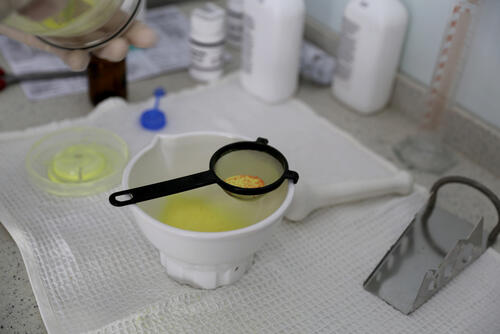
2017: MSF, in close cooperation with the MoHSPP, develops guidelines for treating children with tuberculosis in Tajikistan, promoting shorter treatment plans and newer drugs like delamanid and bedaquiline. Approved by the MoHSPP, these guidelines are a big step in fighting drug-resistant TB among children. Treating the first patient with a combination of delamanid and bedaquiline therapy shows progress in managing tough TB cases in children.
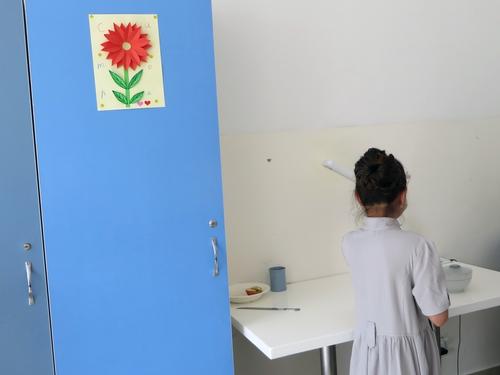
2018: The first patient managed by Family Direct Observation Therapy (F-DOT) achieves a successful outcome. This approach involves shifting treatment to the homes of patients and their families, with MSF teams providing monthly medical check-ups, medication, food, and psychological support to ensure effective treatment.
“MSF staff members brought medicines to the patient's house,” said Munira Gulomova, MSF mental health supervisor. “First, we trained them how to take medication. Afterwards, they took it under the supervision of their family members.”
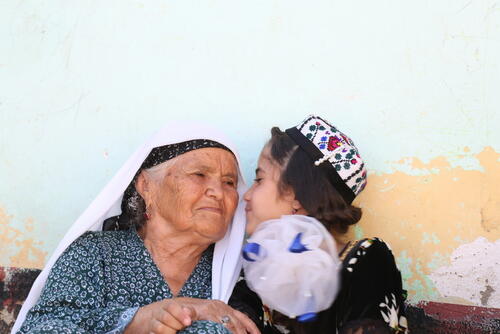
2020: MSF, in collaboration with the National Centre for Tuberculosis, Pulmonology, and Thoracic Surgery, opens a new, advanced waste management zone at Machiton hospital. Equipped with modern incinerators, it handles large volumes of medical waste, including sharp objects and expired drugs. To avoid contamination, ashes collected from incineration are put in large, deep pits that should serve the facility for a long period.
2021: MSF is granted access to Tajik prisons to provide screening and treatment for people with TB. We operate in the central prison hospital in the Vahdat district, using directly observed therapy, where a trained staff member ensures patients take their medication. We also offer counselling to help people who have been incarcerated stick to their treatment plan. After their release, we make sure they can still access TB treatment to avoid interruptions.
“We were probably the only international humanitarian organisation that was allowed to get access to the penitentiary system,” said Winston Mulanda, MSF's medical coordinator. “One of our main goals was to do a TB screening and try to get reliable data on what could be the TB incidence in prisons.”
2023: Dushanbe hosts the 10th regional TB symposium to discuss new treatments for drug-resistant tuberculosis. Organised by the MoHSPP and MSF, it brought together around 160 national and international experts to explore innovative approaches to treatment and advocate for the expansion of new drugs and diagnostic tools in the Eastern Europe and Central Asia region.
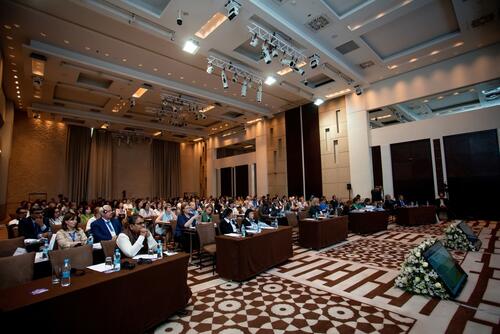
Over the years, MSF’s close collaboration with Tajikistan's MoHSPP has greatly improved TB diagnosis, treatment, and care.
“As a result of our joint efforts, the country has achieved a reduction in the incidence rate, including among children and adolescents,” says Dr Bobojon Pirmahmadzoda, director of Dushanbe City TB Dispensary.
“In 2010, the incidence rate was 12 cases per 100,000 children. Now it is eight to nine cases.”
As MSF wraps up this project, we acknowledge the dedication and hard work of all those involved and look forward to continued efforts to eradicate TB in Tajikistan and beyond.




